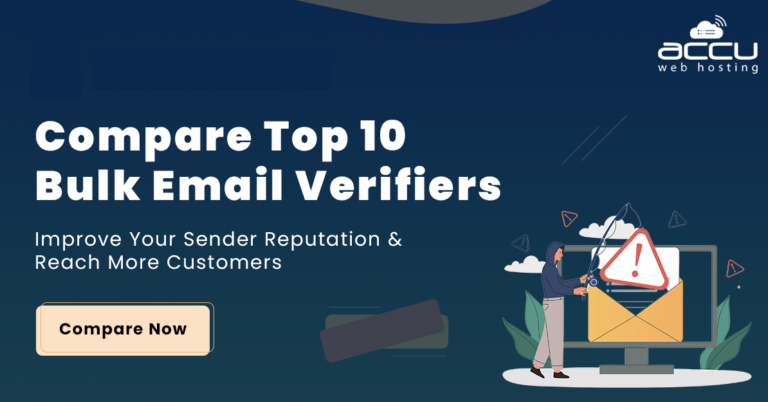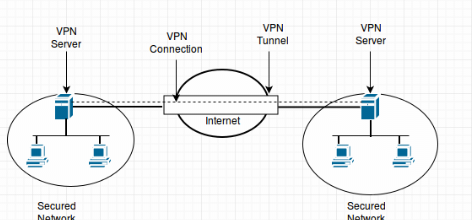Web Hosting for Non-Profits: Build Trust and Raise Funds
For nonprofits and charities, having a website is more than just being online; it’s a way to connect, share updates, and build support. Choosing the right web hosting for nonprofits helps ensure your site can handle these tasks without interruption. Whether you’re helping animals, supporting education, feeding families, or protecting the environment, your website is the hub of your mission.
It gives your organization a stable platform to share stories, receive donations, and keep people informed. With the right setup, you can reach beyond your local area and connect with supporters across regions. Choosing the right hosting isn’t just technical, it’s a step that helps your work reach more people, more reliably.
- 60% of nonprofits worldwide use WordPress, highlighting its dominance in nonprofit web environments.
- 75% of nonprofits use a .org domain, reinforcing credibility and public trust.
- Nearly 55% of potential donors research online before making a donation.
What Is Web Hosting for Nonprofits?
Web hosting for nonprofits offers the storage, tools, and support that charitable organizations require to effectively manage their websites. It allows nonprofits to post updates, accept donations, manage event details, share success stories, and stay in touch with supporters all in a secure, easy-to-manage space.
Many hosting providers offer plans designed specifically for nonprofits, which may include discounted pricing, free SSL certificates, email accounts, and features that support donation handling and site security. These options help nonprofits build trust, share their mission clearly, and work within tight budgets.
Free vs Paid Hosting: What’s Best for Your Cause?
Deciding between free and paid hosting goes beyond financial concerns. It requires considering your requirements with your organization’s goal.
Free hosting can work if you’re just starting out and simply need a space to explain who you are and what your nonprofit stands for. If you’re not collecting donations yet or running active campaigns, a basic site might be enough to share your mission. But as you grow and your work relies more on building trust, engaging supporters, and sharing updates, free hosting can start to feel limiting. It’s a helpful short-term option, but not something to rely on for long-term impact.
Paid hosting becomes essential when your nonprofit’s website shifts from simply sharing information to driving action. If your site is collecting donations, managing volunteer signups, handling sensitive data, or supporting ongoing campaigns, you need hosting that’s stable, secure, and built to handle responsibility. Unreliable hosting can disrupt those efforts and damage trust. Paid plans help ensure that your site remains available when people want to help, especially during fundraising pushes or urgent appeals. It’s less about getting extras and more about removing risk.
Here’s a quick comparison to help you choose the right hosting path:
Compare Hosting Options for Your Nonprofit
Choose the hosting type that aligns with your nonprofit’s goals, budget, and technical needs.
Key Features to Look for in Nonprofit Hosting
For a nonprofit, charity, or mission-driven organization, choosing the right hosting isn’t just about performance; it’s about enabling trust, storytelling, and long-term support. Here are the features that truly matter:
-
Donation Tool Support
Your hosting should natively support top donation plugins and payment gateways (such as GiveWP, PayPal, or Stripe), making it easy to accept one-time and recurring donations directly on your site.
-
Free SSL Certificate
Donors must have peace of mind. A free SSL certificate assures your website is encrypted and secure, an essential requirement for processing online contributions or managing personal information.
-
Ad-Free Environment
Free hosting that places ads can hurt your reputation. A good nonprofit hosting plan must promise an ad-free experience, so your message remains clear and distraction-free.
-
Custom Domain Support
Your own domain (e.g., [yourcause].org) appears professional, instills trust, and makes your nonprofit more discoverable. Hosting should support connecting and managing a custom domain.
-
Transparent and Stable Pricing
Nonprofits usually operate within set budgets. Seek hosting that provides monthly invoicing, no price jumps at renewal, and transparently listed features, so you’re never caught off guard later.
-
Reliable Uptime and Speed
If your donation page or campaign goes offline, not only do you lose visitors, but you also miss out on potential help. Choose a host that is reliable for uptime.
-
Responsive Support Team
Nonprofits do not always have a full-time tech staff. Having access to good, human support, particularly when things go wrong, can save time, headaches, and even donations.
How Web Hosting Helps Your Nonprofit Grow and Connect
Whether you’re a nonprofit, charity, mission-driven group, or NGO, having your own website is essential to building trust.
1. Create a Central Platform for Your Mission
A hosted website acts as your nonprofit’s headquarters. It brings together your story, programs, events, donation links, and contact info, all in one place, available 24/7.
2. Build Trust With Supporters and Donors
Today’s donors expect professionalism. A secure and independently hosted site shows that your organization is established, responsible, and transparent, qualities every supporter looks for before giving.
3. Accept Donations Without Barriers
With proper hosting, you can add donation tools, payment gateways, and fundraising plugins. This means you can collect one-time or recurring donations directly, no third-party redirects, no missed opportunities.
4. Reach People Beyond Your Local Community
Hosting gives your charity or nonprofit a way to reach people across cities, regions, or even globally, allowing you to connect with volunteers, partners, and donors far beyond word-of-mouth.
5. Document Transparency and Build Public Trust
Nonprofits are often expected to show how funds are used, who’s on their board, or what outcomes they’re driving. A hosted website gives you a dedicated place to share reports, financials, and updates, helping build trust with donors, media, and grantmakers.
How to Save Money on Hosting Without Compromising Quality
For nonprofits and charities, every dollar counts. But saving money does not have to equal compromised performance. Here’s how to stretch your budget while still getting the hosting features you truly need:
1. Begin with Free Hosting, But Ensure It’s Ad-Free
If you’re just starting out, select a plan that is free and does not display advertisements or cap your growth. Ad-free hosting keeps your site centered on your purpose, not on someone else’s advertisement.
2. Choose Monthly Billing with No Renewal Hikes
Some providers offer low introductory prices but charge more later. Look for plans like $1.99/month with locked-in pricing, so your costs stay predictable, year after year.
3. Use Built-in Tools Instead of Paid Add-ons
Many paid themes and plugins have free alternatives that work just as well. Choose hosting that supports tools like free SSL, donation plugins, backups, and form builders, all included.
4. Pick a Plan That’s Built for Nonprofits
Some hosts charge for features nonprofits never use. Instead, choose a lightweight plan tailored to mission-driven websites, with support for donation tools, custom domains, and reliable uptime.
5. Avoid Overpaying for Storage or Speed
If you’re not running media-heavy projects, you likely don’t need high-tier plans. A well-optimized low-cost plan can still run fast and securely if your content is kept clean and efficient.
6. Look for Hosts That Offer Both Free & Paid Options
This allows you to start small and scale only when needed. You won’t need to switch providers later, just upgrade within the same ecosystem when your needs grow.
Conclusion
Choosing the right hosting plan isn’t just about putting your nonprofit online—it’s about creating a trusted space to grow your impact, connect with supporters, and share your mission on your terms. Whether you’re just starting out or ready to scale, thoughtful hosting helps keep your purpose at the center of everything you do.
FAQs
1. Why does my nonprofit need a website if we use social media?
A website gives you complete control. Social media is helpful, but your site acts as a central hub for donations, updates, reports, and building long-term trust with supporters.
2. How much does nonprofit web hosting cost?
Some hosting plans start free, while paid options like AccuWeb Hosting begin at $1.99/month with no renewal price hikes. It depends on what features your nonprofit needs.
3. Is it hard to set up a nonprofit website with hosting?
Not at all. Most providers offer simple setup steps, one-click WordPress installs, and helpful support. Even if you’re not tech-savvy, you can launch a basic site in just a few steps.
About the Author: Jason-Pat
Founder & CTO at AccuWebHosting.com. He shares his web hosting insights at AccuWebHosting blog. He mostly writes on the latest web hosting trends, WordPress, storage technologies, Windows and Linux hosting platforms.



